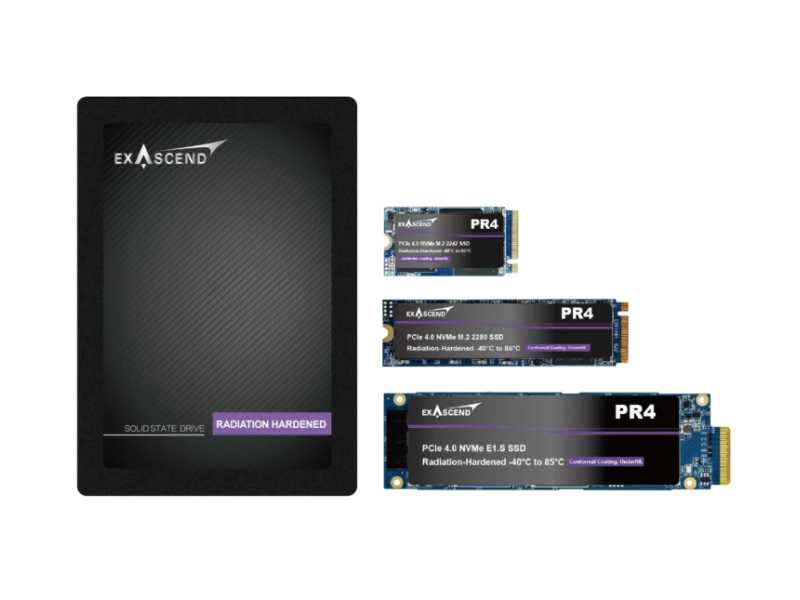
Astute Electronics is an authorised, franchised UK & Ireland distributor and technical partner for GSI Technology, who designs, develops, and markets a broad range of high performance memory products for networking, military, medical, automotive, and other applications.
Specialising in memory products featuring very high transaction rates, high density, low latency, high bandwidth, fast clock access times, and low power consumption. GSI offer unusually long product support life cycles, short lead times, the largest high performance memory product portfolio in the market and complete pre and post-sale support.
Applications
| • Aerospace | • Medical |
| • Defence | • Networking |
| • Military | • Automotive |
Contact
 Simon Brennan
Simon Brennan
Memory & Storage Technical BDM
[email protected]
gsitechnology.com
 SRAM
SRAM
Quad SRAMs
GSI’s SigmaQuad™ SRAMs are the acknowledged leader in the industry with their combination of capacity and performance. SigmaQuad transaction rates are unequaled by any competitors.
SigmaQuad SRAMs are synchronous memories with separate read and write data buses. “Quad” refers to their ability to transfer 4 beats of data (2 beats per data bus) in a single clock cycle. SigmaQuad memories are ideal for applications that alternate between read and write operations frequently, at operating speeds of 250 MHz and above.
GSI’s SigmaQuad devices are compatible with all competitor Quad Data Rate SRAMs.
DDR SRAMs
GSI’s SigmaDDR™ SRAMs are the acknowledged leader in the industry with their combination of capacity and performance. SigmaDDR transaction rates are unequaled by any competitors.
SigmaDDR SRAMs are synchronous memories with a common read and write data bus. “DDR” refers to their ability to transfer 2 beats of data on the data bus in a single clock cycle. SigmaDDR memories are ideal for applications that alternate between read and write operations infrequently, at operating speeds of 250 MHz and above.
GSI’s SigmaDDR devices are compatible with all competitor Double Data Rate SRAMs.
NBT SRAMs
GSI Technology’s No Bus Turnaround (NBT™) product portfolio is the largest in the industry with six different densities in x18, 32, 36 and 72 bit widths. Our NBT SRAMs provide the fastest clock rates and lowest power of any in the world.
NBT SRAMs are synchronous, burst-capable memories with a simplified interface that is designed to use a data bus’s maximum bandwidth. NBT devices do not require “turnaround” cycles (idle clock cycles between a read and write operation). NBT SRAMs are used in networking, industrial, automotive and medical imaging applications where a mid-range performance point (typically a 333-166 MHz clock rate) is required.
IP Ports
GSI offers SRAM Interface Port IPs that can be used with Xilinx UltraScale+, UltraScale, and 7 Series FPGAs.
GSI’s SigmaQuad and SigmaDDR SRAMs are our highest performance SRAMs and as you might expect, with GSI’s SRAM Port IP, users can get faster SRAM performance than ever before. In addition, GSI can configure the IP to a wide variety of memory configurations, beyond what is traditionally available through the Xilinx tools.
GSI’s SRAM Port IP supports:
- Burst of 4 Separate I/O Quad operations for x18 and x36 data bus width
- Burst of 2 Separate I/O Quad operations for x18 and x36 data bus width
- Burst of 2 Common I/O DDR operations for x18 and x36 data bus width
SyncBurst SRAMs
GSI offers the broadest portfolio of Synchronous Burst (SyncBurst™) SRAMs in the industry. Our SyncBurst SRAMs provide the fastest clock rates and lowest power of any in the world.
SyncBurst SRAMs provide a “burst” of (typically) 2 to 4 words in response to a single clock signal. SyncBurst SRAMs are used in networking, industrial, automotive and medical imaging applications where a mid-range performance point (typically a 333-166 MHz clock rate) is required.
Specialty SRAMs
GSI Technology’s Specialty SRAMs fill the gap left when other SRAM companies left the industry. Our Register-to-Register, Late Write, and Double Late Write SRAMs have enabled critical designs to continue long after all other options were made obsolete.
Asynchronous SRAMs
GSI Technology’s Asynchronous SRAM portfolio can handle all of your design needs. Our asynchronous SRAMs are easy to use, have fast access times, and are available in a variety of packages.
Asynchronous SRAMs are appropriate as main memory for small cache-less embedded processors used in industrial electronics, measurement systems and cost-sensitive networking equipment, among many other applications.
 DRAM
DRAM
Modules
Low Latency DRAMs
GSI’s Low Latency DRAM (LLDRAM) is an ideal solution for advanced data networking applications. Its low Random Cycle Time (tRC), eight-bank memory array architecture, and double data rate transfers enable a level of performance unmatched by commodity DRAM. And its SRAM-like address interface makes it much easier to use. The result is a device that can maintain near-100% bus utilization for many networking tasks.
GSI’s LLDRAM devices are ideal for 10GbE, 40GbE and 100GbE packet buffering and inspection tasks. They are the technology of choice on a variety of Network Processor Units and FPGA Architectures.
